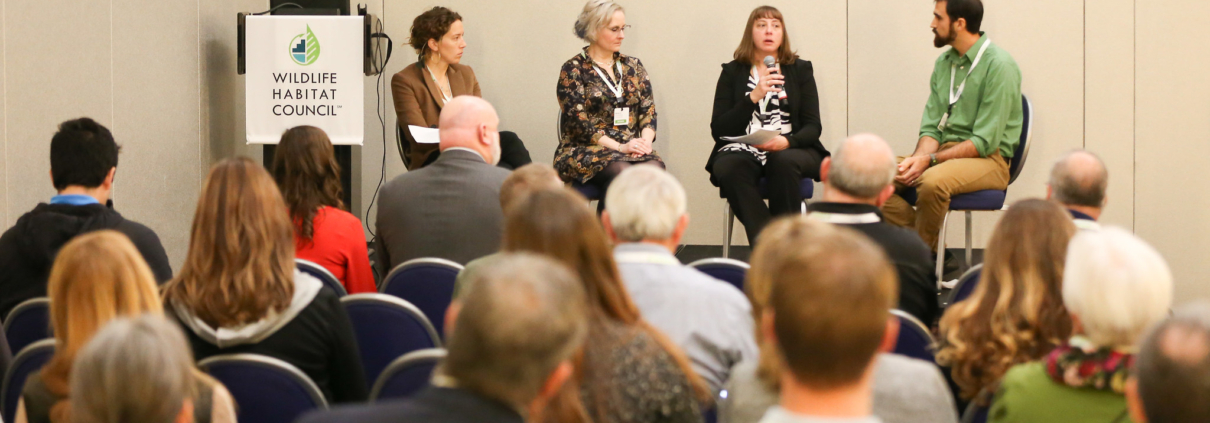The Role of Sustainability Reporting in Corporate Conservation – A Conservation Conference Recap
Sustainability reporting is an important tool for companies to promote corporate responsibility and to display transparency to shareholders, stakeholders, employees and the general public. But the topic is still one that often gets mired in corporate-speak and isn’t directly connected with employees, stakeholders and customers.
That’s why at our 2019 WHC Conservation Conference, we decided to host a panel on the subject, and identify areas where companies can grow and improve.
The panel was the second most popular session at conference, with 102 people in attendance.
Matt Silveira, Sustainability and Public Affairs Manager at CEMEX, and one of the panelists, was struck by the number of questions and audience participation.
“Companies are under growing pressure to articulate how they are contributing to a more sustainable future and our topic addressed just that, how to leverage sustainability reporting to tell our story and inspire others,” he said.
Silveira says sustainability reporting increases engagement and promotes a sense of purpose. He says CEMEX’s approach to corporate reporting integrates the United Nations Sustainable Development Goals (SDGs) within their corporate strategy.
“By aligning our corporate strategy to the SDGs, we not only position ourselves better to respond to the great challenges facing the world, we can better communicate and report the strategies, goals and actions we are taking to help build a better future for society,” he said.
Sita Daavetilla, Sustainability Manager at Summit Materials, who was also on the panel, says it’s important not to lose the human element.
“Corporate reporting is important, even more so in today’s world because companies are fundamentally human, for humans by humans,” she said.
“Demonstrating responsibility in corporate reporting allows people to make a deeper connection with the business. A sustainability report is a powerful way for a company to demonstrate its values to stakeholders, and how they are making advancements for society through those values.”
A third-party evaluation for conservation activities, such as WHC Conservation Certification, can be beneficial to companies by providing metrics on their programs. This year, WHC has certified over 700 programs, including those in 48 U.S. states, 29 countries, the District of Columbia and Puerto Rico.
Daavetilla says WHC programs are a simple, effective way for companies to tell their stories, by getting to the heart of sustainability, the role of nature, and its impact on the people who work on the projects, and the people who benefit from them.
She says storytelling is perhaps the most important aspect of data, as it helps demonstrate a long-term commitment to quality habitat for wildlife, conservation education and community outreach initiatives.
“Data is clearly important, but no one remembers the data,” she said.
“People walk away remembering a story that the data helped tell.”
“I believe WHC programs and other sustainability efforts are an opportunity for companies to connect with their stakeholders to tell their story, and inspire others to do the same.”


